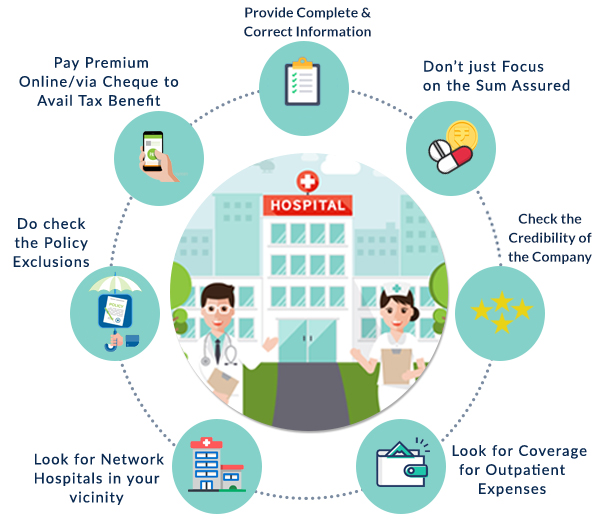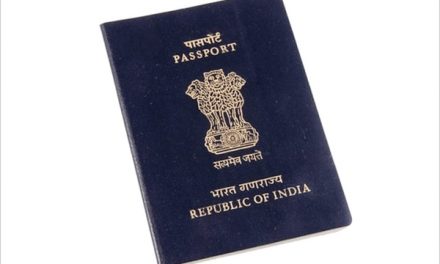Health insurance is a medical insurance policy that offers financial coverage for medical expenses when the policyholder is hospitalised. Companies cover the insured with the facility of cashless hospitalization at a network hospital or provide reimbursement for the incurred expenses. Generally, insurance companies have tie-ups with the leading hospitals to provide cashless treatment to the insured. In case the insurance company has no tie-ups with the hospital, they reimburse the cost of expenses incurred by the insured. The government also promotes health policies by providing a deduction from income tax.
Importance Of Health Insurance In India:

Health Insurance is one of the fastest-growing industries. However, this wide scope for growth indicates the limited penetration of insurance among the Indian populace. As per the latest report released only 20 per cent of the Indian population had health insurance coverage.
Buying an insurance policy for yourself and your family is important because medical care is expensive, especially in the private sector. All this can be avoided by just paying a small annual premium which would lessen your stress in case of medical emergencies.
A good health policy would usually cover expenses made towards doctor consultation fees, costs towards medical tests, ambulance charges, hospitalization costs and even post-hospitalization recovery costs to a certain extent.
Benefits of having a Health Policy:
1. Cashless Treatment: If you are insured, you can get cashless treatments as your insurance company would work in collaboration with various hospital networks.
2. Pre and post hospitalization cost coverage: Insurance policy also covers pre and post-hospitalization charges up to 60 days, depending on the insurance plans purchased.
3. Transportation Charges: Insurance policy also covers the amount paid to ambulance towards the transportation of insured.
4. No Claim Bonus (NCB): This is the bonus element which is paid to the insured if the insured does not file a claim for any treatment in the previous year.
5. Medical Checkup: Insurance policy also provide options for health checkups. Free health checkup is also provided by some insurers based on your previous NCBs.
6. Room Rent: Insurance policy also covers room expenses depending on the premium being paid by the insured.
7. Tax Benefit: Premium paid on insurance is tax-deductible under section 80D of the Income Tax Act.
How to Select the Right Insurance Policy
It’s difficult to select the best insurance policies as all insurance company provides a similar type of insurance plan. Hence some of the important points that any Person should look before purchasing any plans are:
- 1. Sum Assured
- 2. Minimum Entry Age and renewability clause
- 3. Room Rent Capping
- 4. Inclusion and Exclusion
- 5. No Claim Bonus
- 6. Other Benefits
Eligibility Criteria:
In India, people under 45 years of age are not required to undergo a mandatory health checkup when obtaining a health insurance policy. They are, however, required to disclose any pre-existing conditions such as diabetes or hypertension. It is, therefore usually advised that one should get health insurance when young so that the premium would be less.
Documents Required when buying a Health Insurance Policy:
There are a few documents that you need to provide such as:
1. Age proof – Any one of Birth Certificate, 10th or 12th mark sheet, Driving License, Passport, Voter ID, etc.
2.Identity proof – Driving License, Passport, Voter ID, PAN Card, Aadhar Card, which proves one’s citizenship.
3. Address proof – Electricity Bill, Telephone Bill, Ration Card, Driving License, Passport, should mention the permanent address.
4. Some plans require a medical check-up (usually for elder people above the age of 45 years)
5. Passport Size Photo
Types Of Health Insurance Plans In India:
1- Individual Health Insurance Plan: This type of health insurance plan provides financial coverage to an individual policyholder against certain illnesses, offering advantages like cashless hospitalisation, reimbursement, coverage of pre hospitalisation and post-discharge expenses.
Family Insurance Plan: Under this policy, an individual can include all the family members against multiple diseases under a single cover. Family health plan offers a fixed sum assured for the family members, which can be availed by all members of the family or by anyone individual in the family.
3. Senior Citizen Insurance Plan: This policy is designed for senior citizens or individuals over 60 years of age offering protection from health issues during old age.
4. Surgery and Critical Illness Insurance Plan: This plan is suitable for the insured that requires treatment against critical illness, such as kidney failure, paralysis, cancer, heart attack etc. As the medical expenses of these treatments are very high, the premium applicable to these types of policies is also high.
5. Maternity Health Insurance Plan: This policy covers costs, including pre and postnatal care, child delivery expenses of newborn babies. This policy is also covered for the newborn up to a certain period as mentioned in the plan. Ambulance costs are also covered.
6. Personal Accident Plan: This policy covers hospitalization expenses in the event of an accident. Premium amount is depending upon the amount of cover taken.
7. Unit Linked Health Plan: These plans offer a unique combination of insurance and savings both at the same time. This policy helps in building a corpus which can be used to meet those expenditures which are not covered by the insurance policy.
Some of the Health Policies in India:
- 1. Max Bupa Health Insurance
- 2. HDFC Ergo Health Insurance
- 3. Bharti Axa Health Insurance
- 4. SBI Health Insurance
- 5. L&T Health Insurance
- 6. Bajaj Allianz Health Insurance
- 7. Apollo Munich Health Insurance
- 8. National Health Insurance
Tax Benefits Of Health Insurance:
Insurance policies entitle you to receive tax benefits under section 80D of Income-tax Act,1961. The premium you pay towards insurance plans for yourself or your family members, get you a tax rebate, irrespective of whether they are dependent on you or not. The tax benefit offered, concerning the premiums, is subject to the age of the person and there is a cap on the maximum benefit that can be availed. You can save a max up to rs 25000 in taxes a year unless your age is above 60 years. If your age is above 60 years, then this cap of maximum tax benefit increases to rs 30000.
If you are paying the insurance premiums for your parents as well as your own, then you are eligible for tax exemption up to Rs 55,000 a year under section 80D provided your parents are senior citizens.












